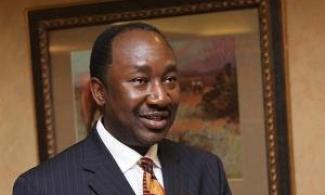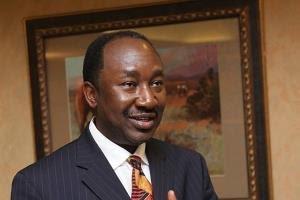
There was a different outcome only a few days ago, the first day of February 2022, when soldiers failed in their violent attack to take over the government of the impoverished Guinea-Bissau.
Between January 23-24, 2022, there was a military coup in Burkina Faso which ousted elected President Roch Kabore, and suspended the constitution.
In the evening of January 27, 2022, I was invited to do live interview and analyses of the unfolding, fast-paced events in late Thomas Sankara’s home land of Burkina Faso, on one of the most influential news networks in the world, AlJazeera. The news anchor was Nick Clark.

Since 2020 to the closing days of January 2022, groups of ambitious soldiers have toppled the governments in the terrorists and jihadists’ haven Mali, war-torn Chad, the former pride of Francophone west Africa Guinea, terribly unstable Sudan, the disfigured land of the noble called Burkina Faso.
There was a different outcome only a few days ago, the first day of February 2022, when soldiers failed in their violent attack to take over the government of the impoverished Guinea-Bissau.
This rash of military coups in west Africa and across parts of the Sahel region of Africa, understandably, raised the concern of the “democratically installed” leaders of the continent and its hypocritical democratic friends around the world. Especially, among those who colonized and exploited the resources of those countries which placed these poor African countries on the ill-fated paths of conflicts and ethnic and religio-clannish postcolonial politics. I think it's better that I classified those medieval, jihadists’ conflicts as sectarian warfare!
Since the 1960s, it’s the same templates message of justification for hijacking power; it’s the usual manifesto of some soldiers claiming to be on the task of “national redemption.”
It’s the same lingo that they want to be in power to right the wrongs of the idle civilians! Those behemoths of corruption and waste. elected to self as they wish!
The soldiers broadcast on their country’s national and international media their checklist of indictment of the sacked government with truckloads of charges — ranging from undermining national sovereignty and national integrity to crimes of incompetence, squandering the riches of the poor country!
In some cases, their accusations are accurate. It is one thing to describe a problem and another to implement its solution!
Sadly, the experience we have had across the African continent is that, at least, 95% of those military dictatorships created more complications, truncated due process and the rights to fair judicial hearing for those pro-democracy activists who spoke against their hijack of power. The soldiers left trails of corruption, impunity, decadence, ethnic politics, nepotism and breakdown of moral standards and values of the society — which in sociology is generally described as a state of anomie.
Let’s go back to the failed Coup in Guinea-Bissau which the embattled 49-years old President Umaro Sissoco Embalo alleged was sponsored by “drug trafficking and corruption” interests, as quoted in USAfricaonline.com.
Guinea-Bissau, relatively small west African country is a former colony of Portugal, which gained political independence in 1974. The country has gone through four coups.
Embalo, a bold and controversial figure, is well aware that it is known in major security and law enforcement agencies that his relatively poor country has become a transit point for some drug dealers and traffickers.
On balance, I think the certain paradox of military rule and consequentialism of authoritarianism is the fact that they become the problem they claimed they came to fix, as self-proclaimed guardians of “national salvation.” Rather than discuss and debate competitive options for development, some soldiers
unleash(ed) brutality and brigandage, societal dislocations, more corruption….
*Dr. Chido Nwangwu, the author of the forthcoming 2022 book, MLK, Mandela & Achebe: Power, Leadership and Identity, serves as Founder & Publisher of the first African-owned, U.S-based newspaper on the internet, USAfricaonline.com, and established USAfrica in 1992 in Houston. He has appeared as an analyst on CNN and SKYnews, and served as an adviser on Africa business to Houston’s former Mayor Lee Brown. @Chido247